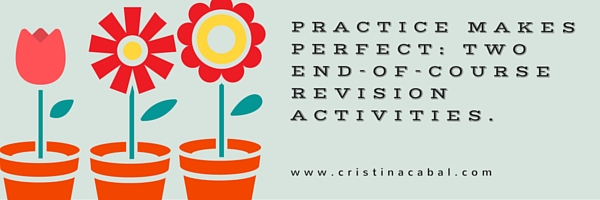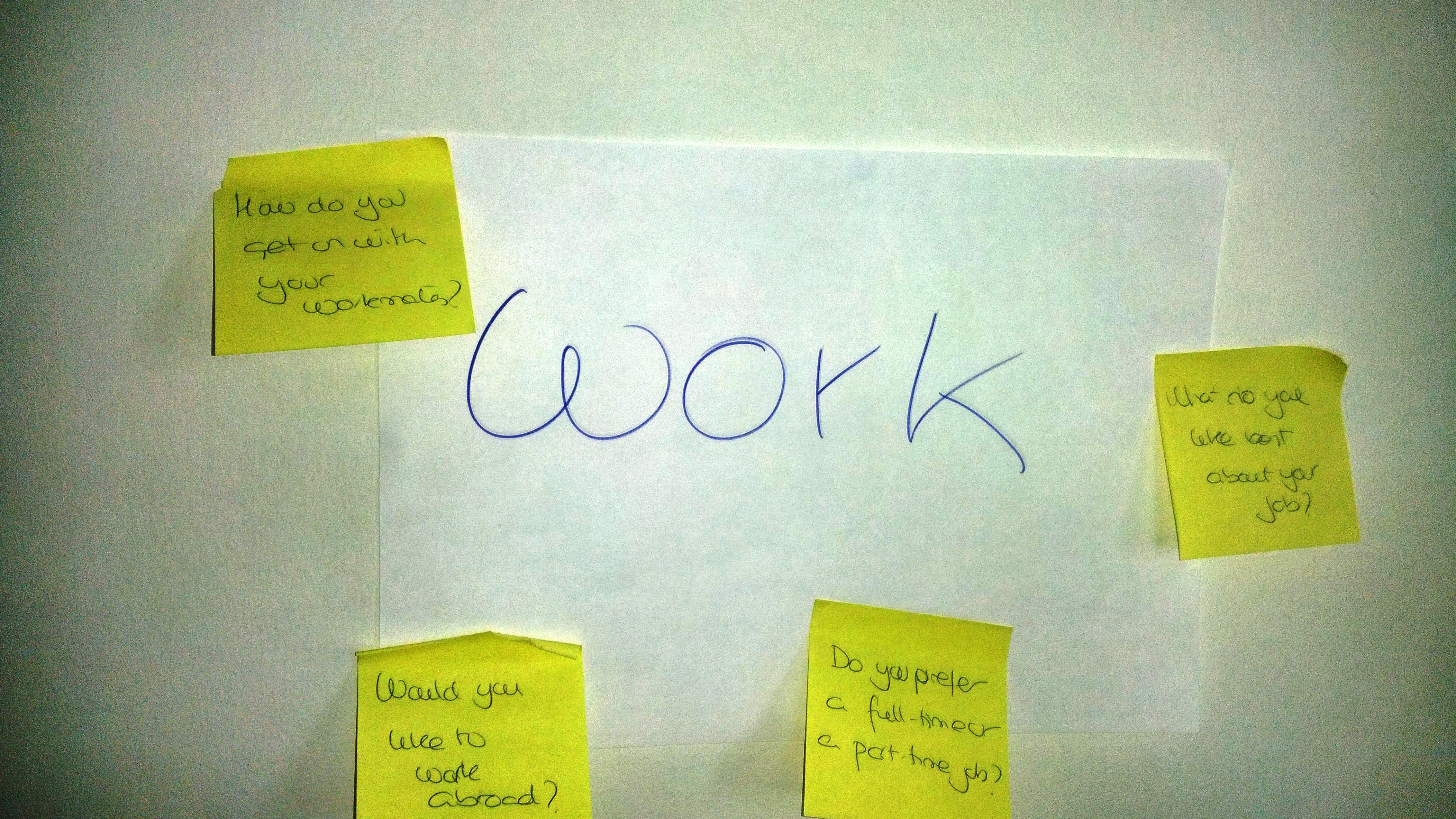Time to revise!
It’s almost too late to revise. Almost. Key word being almost.
The school year is wrapping up and it’s time to revise, prepare, practise and administer end-of-course assessments. Not that I like the last part the slightest bit.
Revision activities are a great help to students. It helps them see where they are and what areas they need to study harder.

These are two revision activities I did with my intermediate and upper-Intermediate students that could easily be adapted to any level to suit your needs.
- revising grammar and vocabulary
- revising topics for the oral exam
REVISING GRAMMAR AND VOCABULARY
I got this idea from a lecture given by Roy Norris, although I have slightly modified it to adjust it to my students’ needs and I have also invented the rules, which can be altered in any way you choose.
Materials: a dice and a set of coloured strips of paper for each group. (an alternative to colour coding below)
Procedure:
- Decide six areas you want to revise and find a different coloured paper for each one. Alternatively, you can use a standard sheet of white paper giving each area the same number, up to six. I revised I wish/if only, conditional sentences, passive, phrasal verbs, word building, and miscellaneous. The type of exercise in my revision game was mainly “rewriting exercises”, except for the “word building” area. I would suggest a minimum of 5 sentences for each area you want to revise.
Don’t panic! There are plenty of these exercises online, so you don’t really need to type the sentences, just copy/paste.
- Print the six areas – as shown in the pictures- and at the back write the answer to the exercises in a way that the typed sentence and your written answer coincide. This is an important step as you are later going to cut strips of paper containing the typed sentences on one side, and on the other the answer. (see pictures).
- At the beginning of the game, divide the class into groups of four. Give a dice and a set of coloured strips of paper to each group.
- Once in groups of four, tell them they will be working in pairs and competing against the other pair in their group.
- Ask them to place the strips of paper on a pile, sorted out by number or colour, with the typed part facing up. Give each group a dice. If you have opted for the colour-coded option, on the whiteboard assign numbers 1-6 to the different colour. (For ex: number 1-orange, number 2-pink…etc).
Rules:
- Pair A throws the dice. Depending on the number they take a strip of paper from one pile or another. There is no time limit. Both pairs need to write down the answer. When one pair finishes they say so, and the other pair has 20 seconds to finish. When time’s up, Pair A is first to give the answer. They check being careful not to show the answer to the other pair. If it’s wrong, then it’s Pair B’s turn to try. They score one point for every correct answer.

This kind of activity allows the students to work on their own without much teacher supervision, which is both empowering and motivating.
If you are a student, studying on your own, you can write your own exercises and revise in the same way.
REVISING TOPICS FOR THE ORAL EXAM
This is a simple exercise I did with my students to revise the topics they needed to study for the oral exam. I normally give them a set of questions to discuss about a given topic, so this time I thought it might be a good idea if, for a change, they provided the questions.
Procedure
- On the walls of the class, stick the topics to be revised. Write them big enough for the students to see from a distance.If you have a large class, ask students to work in threes and if you have a smaller class, ask them to work in pairs or even individually.
- Tell them they will need to come up with a question for each of the topics displayed on the walls. Walk around the class, offering help and correcting mistakes.
- Once they have their question about a topic, give them a sticky note and ask them to write their question on it and put it next to the topic the question relates to. (see picture). Allow 10-15 minutes for this step.
- Ask students in pairs to stand up and choose the topic(s) they want to revise. In pairs they take it in turns asking and answering the questions. Encourage students to use a variety of structures and a wide range of vocabulary.

Hope you liked the activities!
Blog de Cristina is also on facebook. Follow us.